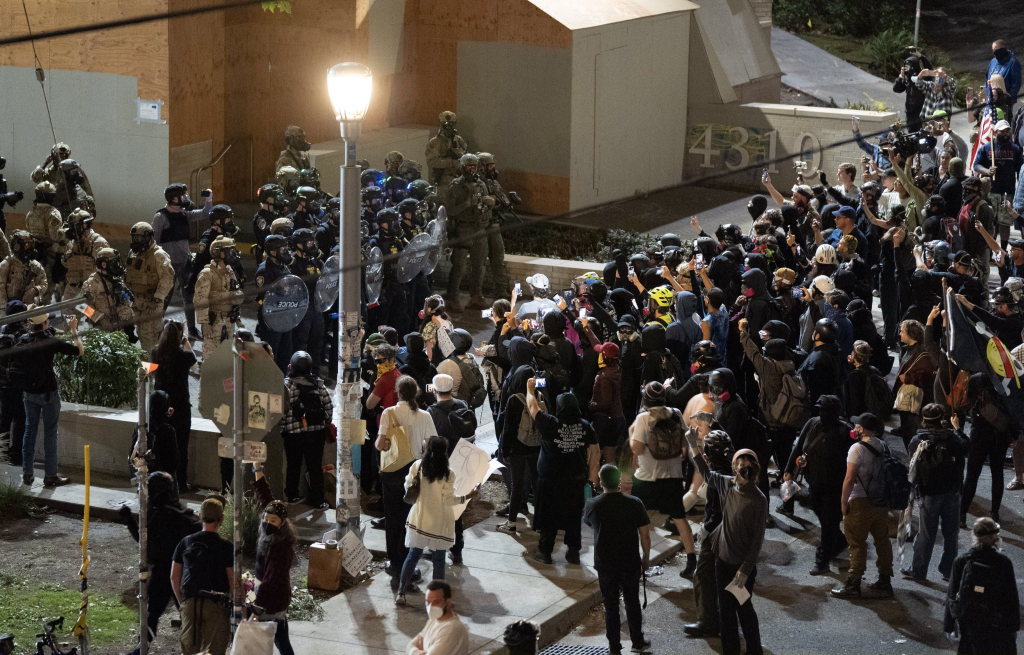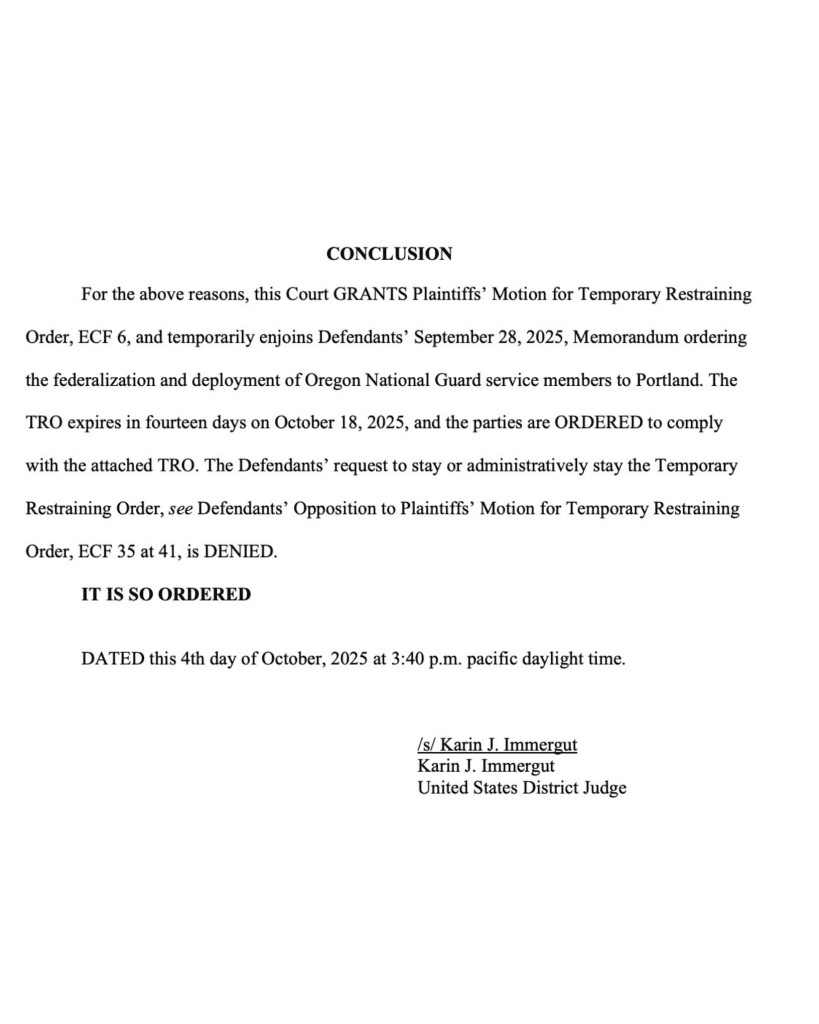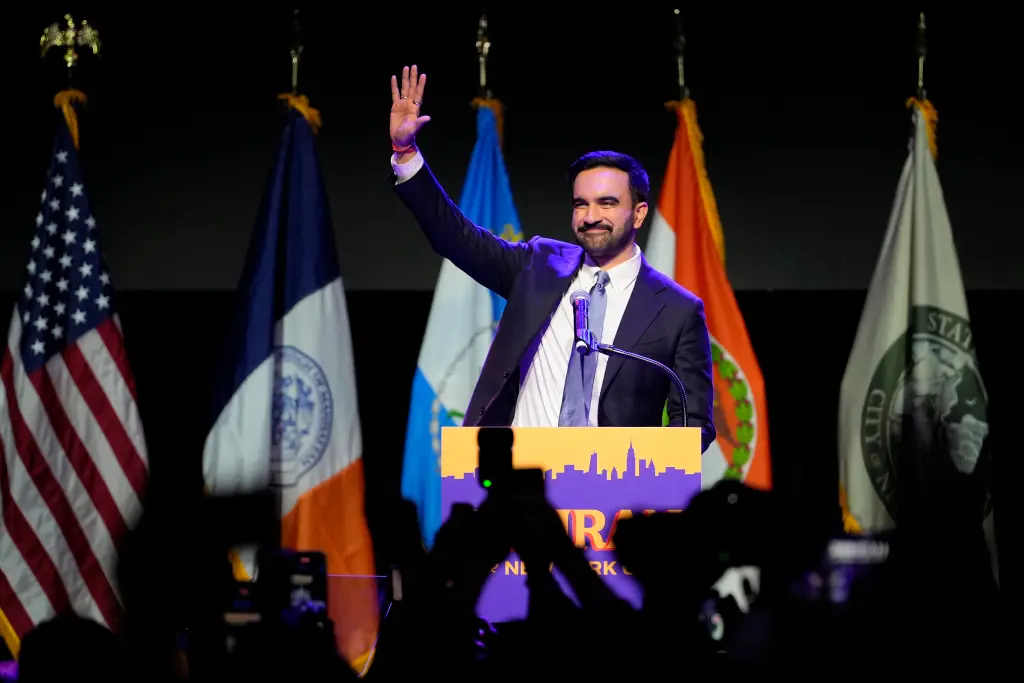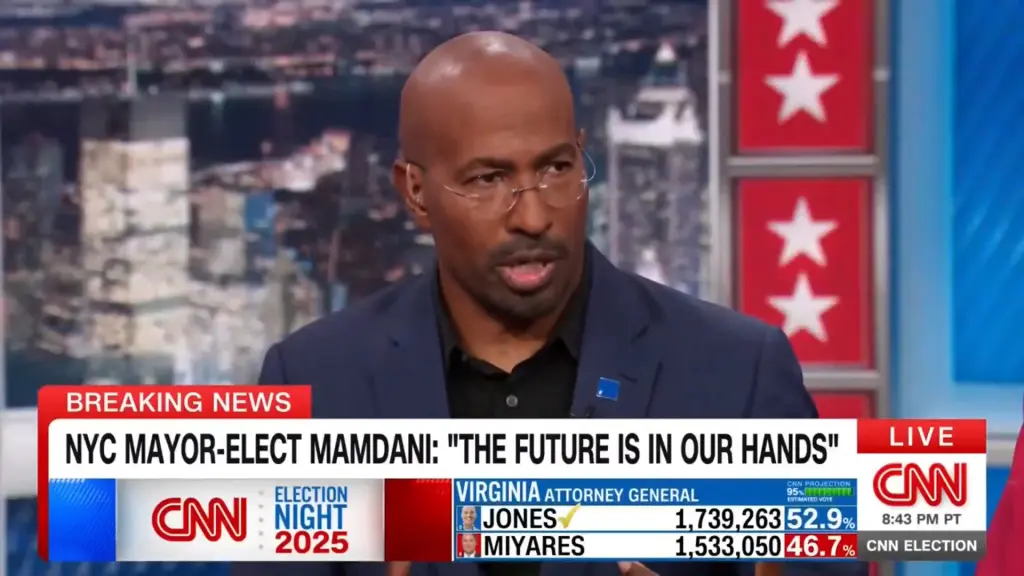Federal Judge Halts President Trump’s Order to Send National Guard into Portland — As the City Spirals into Violence and Lawlessness
In a move that’s already causing massive political shockwaves, U.S. District Judge Karin Immergut issued a temporary restraining order blocking President Donald Trump from deploying the Oregon National Guard to Portland. The order, handed down late on October 4, 2025, effectively halts the President’s effort to send 200 Guard members into a city still struggling with unrest, property destruction, and anti-ICE protests that have persisted for weeks.

The judge’s decision cited “violations of state sovereignty” under federal law, specifically invoking 10 U.S.C. § 12406 — the same statute that limits the President’s ability to federalize National Guard units without state consent. The temporary order expires October 18, pending further hearings. But the immediate impact was clear: the deployment Trump had authorized just hours before was stopped in its tracks.
The ruling has sparked fierce backlash among Trump supporters, conservative media, and local residents who believe federal action is long overdue. Portland, a city that has become a flashpoint for protests and violent demonstrations over the years, has once again descended into chaos. Videos on social media show masked groups clashing with police, graffiti covering government buildings, and businesses boarding up downtown areas as fears of renewed rioting spread.

Supporters of the President argue that this is yet another example of the system tying his hands when decisive leadership is needed. “Insurgency. Rebellion. Local officials do nothing,” conservative commentator Eric Daugherty wrote in a viral post, calling the ruling “an outrageous decision that leaves citizens defenseless.” The post included photos of Trump, the judge’s official order, and a chaotic street scene — and within hours, it had gained thousands of retweets and comments echoing frustration.

For Trump’s team, this ruling lands at a politically sensitive moment. Just last week, his Secretary of War, Pete Hegseth, authorized limited federal assistance in several cities facing escalating violence after immigration raids. Portland, already at the center of these tensions, saw crowds march through downtown protesting what activists called “federal militarization.” But the federal government’s position remains that the National Guard was never meant to suppress protests — only to protect critical infrastructure, federal courthouses, and personnel under direct threat.
Judge Immergut, a Trump appointee herself, emphasized in her brief ruling that the federal order bypassed Oregon’s state authority. “The state retains the constitutional right to control the deployment of its militia absent clear evidence of rebellion or obstruction of federal law,” she wrote. Still, critics see the decision as overly cautious, warning that the delay could lead to more violence and deeper division.
Meanwhile, local leaders in Oregon are standing firm. Democratic officials, including Governor Tina Kotek, praised the ruling as a “victory for state rights” and said the President’s move would have “inflamed tensions” rather than resolved them. Yet on the streets, the story looks different. Business owners say they feel abandoned, while residents voice fear that neither local police nor federal agents are in control.

As night fell over Portland following the ruling, small fires were reported near City Hall, and chants of “No National Guard!” echoed through the city’s downtown. Federal agents stationed in the area have been instructed to “stand by” but not engage unless directly threatened. For many, the ruling feels like a snapshot of America’s broader struggle — a tug-of-war between state independence, federal power, and a public desperate for order.
Whether the federal government will appeal the restraining order remains unclear. What is certain is that the Portland crisis has once again reignited debate over how much power the President truly has when it comes to restoring peace at home.
For now, as Judge Immergut’s order stands, the National Guard will remain grounded — and Portland will have to face another night on its own.



